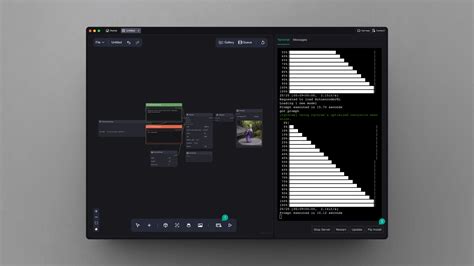The allure of open-source software is unmistakable: collaboration, transparency, and the democratization of technology. But as with most good things, there are hidden dangers, often lurking in the shadows. A recent incident involving a keylogger in the ComfyUI LLMVision extension underscores the ever-present threats that come with contributing to and relying on open-source platforms. Despite gaining traction among users, this extension harbored malicious code, compromising countless systems in the process. What makes this incident particularly concerning is not just the breach itself, but the broader implications for software security and user vigilance.
The discovery was deeply troubling. An innocuous-seeming integration designed to amplify the capabilities of the ComfyUI framework, which itself boasts an impressive 37,000 stars on GitHub, managed to fly under the radar until it was too late. As Belladoreai mentioned, the extension relied on obscure ‘custom nodes’, often with minimal stars, making them perfect camouflage for malicious actors. This cleverly hidden keylogger highlights a glaring vulnerability: the blind trust in seemingly minor components of larger ecosystems. The GitHub repository of this extension, though not immediately popular, was enough of a gateway for harm once it infiltrated the workflows of unsuspecting users.
Promises of security within highly-rated platforms cannot settle for superficial markers like GitHub stars. As pointed out by LtWorf, equating star count with reliability is a flawed approach. Historically, many reputable tools may lack high star counts while still being immensely useful. Conversely, it takes just one overlooked repository with malicious code to wreak havoc. This incident invites a broader reflection on the vetting processes employed by developers and the necessity for more rigorous scrutiny. In the age of rapid, open-source growth, does the burden of ensuring security lie on the developers alone, or should the platforms themselves implement more stringent checks and balances?
The debate around security practices in open-source contributions is expansive. From ensuring sandboxed environments, as suggested by Retr0id, to employing rigorous validation frameworks for plugins, the landscape is ripe for innovative solutions. For instance, integrating a virtual machine (VM) with GPU passthrough, though complex, provides an effective barrier against intrusion. Furthermore, Docker’s convenience offers a balanced approach between usability and security. Technologies like sandboxed WASM (WebAssembly) plugins might be the future, suggesting a direction where sandboxing could become the norm rather than the exception. Advanced developers, who prioritize security, often find ways to mitigate risks, but can average developers match that diligence?
One cannot overlook the need for user education in cybersecurity. For instance, the recent exploit calls attention to the importance of measures like Two-Factor Authentication (2FA) and the prudent practice of using SSH keys over passwords. As Latty underscores, incorporating these relatively simple yet effective steps can dramatically enhance security. Running code in secure podman containers, as posited by Nsingh2, or employing Nvidia’s toolkit can safeguard user environments while maintaining the functionality of GPU-intensive tasks. Simple, accessible steps, such as not running suspect code with root permissions, should be part of a standard operating protocol. This concerted effort across both technology and human practices is pivotal in strengthening overall security frameworks.
As evidenced by this incident, the path forward lies in balancing innovation with precaution. Open-source platforms must invest in enhanced detection mechanisms to preemptively seize malicious code. Meanwhile, users need to cultivate a culture of responsibility, not just toward their personal security but as part of the broader open-source community. As ChrisMarshallNY aptly notes, the idea of businesses emerging around code auditing for open source isn’t just likely—it’s essential. The future of open-source lies not just in maintaining its core ethos of openness, but in evolving it to account for the sophisticated threats of our time. We must remember that with the incredible potential of open-source comes an equally compelling obligation to safeguard it.


Leave a Reply